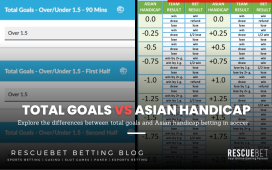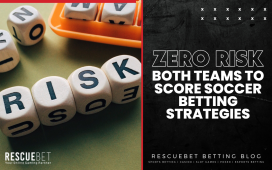Volleyball is a highly-competitive sport that can be played in singles, doubles, mixed doubles, or as a team sport with multiple players. Volleyball is similar to tennis in the sense that players can play on different courts such as sand, turf, pitch, or more commonly at an indoor stadium. The game is easy to understand and bet on if a punter is willing to put in the time and effort to understand the sport. Traditionally, the game is played between two teams with 6 players on each team. The two teams are separated by a net in between and each team hits the ball over the net within 3 tries by setting up the play. If the team manages to serve the ball and it hits the opposition floor, then the team scores a point. If the opposition manages to return the serve but commits a foul, then the team scores a point as well. Generally, the first team to score 25 points or more and win by a 2 or more point margin is declared the winner of the game.
Betting On Volleyball
In terms of betting, volleyball still has some way to go in terms of its reach and popularity. While it’s more popular than betting on cycling and handball, it still has a long way to go to compete with the likes of basketball or football. We take a look at how punters can bet on volleyball before the game and in-game bets and profit consistently:
1. Betting On Sets
Volleyball is played in games of sets with each set going to 15 or 25 points. The first team to win a set score a set point. A match is usually played in odd sets such as 3 or 5 sets. This helps declare a clear winner at the end. Punters can bet on each set as a strategy, or by how many sets a team may win by, winning margin, etc. A point may go to either team. However, studying the pattern of distribution of points can help a punter make a prediction on the winner of the set or sets.
2. Betting On Match Results
A punter also has the option of betting on the match result. Predicting the match result may be harder if both teams are evenly matched. As mentioned earlier, it’s harder for a punter to consistently and accurately predict a match. Especially before the start of the game. However, making an in-play bet gives a punter an opportunity to see how the game is playing out. Then, a punter can make a wager on one side or outcome.
3. Betting Markets
Punters have access to several betting markets both in-game and pre-game bets. A punter can make a wager based on the most serve points, most blocks, spikes, rallies, fouls, individual points, handicap betting markets if one team is much stronger or much weaker than the opponent. Betting markets give punters the option of betting on various betting markets versus betting only on the end result. It may be easier for a punter to predict which team will get the most blocks by looking at a squad, but the punter may not be able to predict the outright winner of the match.
4. Tournaments To Bet On
While volleyball still has a long way to go in terms of tournaments to bet on. Punters can bet on the volleyball Olympics once every 4 years. Punters can also bet on National College Volleyball tournaments. These tournaments are screened online and produce betting opportunities that most other punters don’t know about. The more popular a tournament is, the more punters are going to bet on it. But it’s with the lesser popular tournaments that punters can spot value.
5. Adopting A Strategy
Adopting different strategies gives a punter a rough guideline of what to do when certain conditions are favorable or unfavorable. This gives a punter an edge especially if a punter has only recently started betting or started betting on a new sport such as volleyball. It’s important to remember that a team can win a game and you can win money off that bet. However, without an efficient strategy in place, a punter could lose all their winnings without accounting for risk. Even playing a sport is part of a strategy that could give a punter an edge versus another punter that may not play the sport.
























